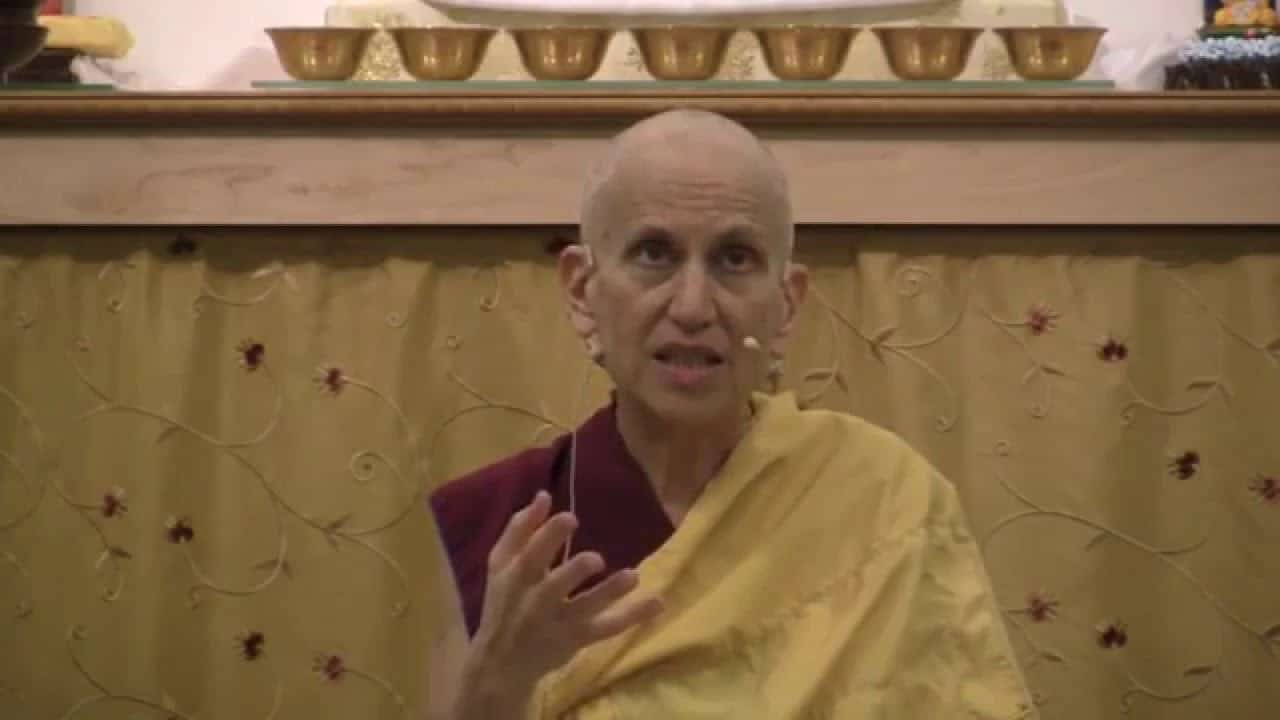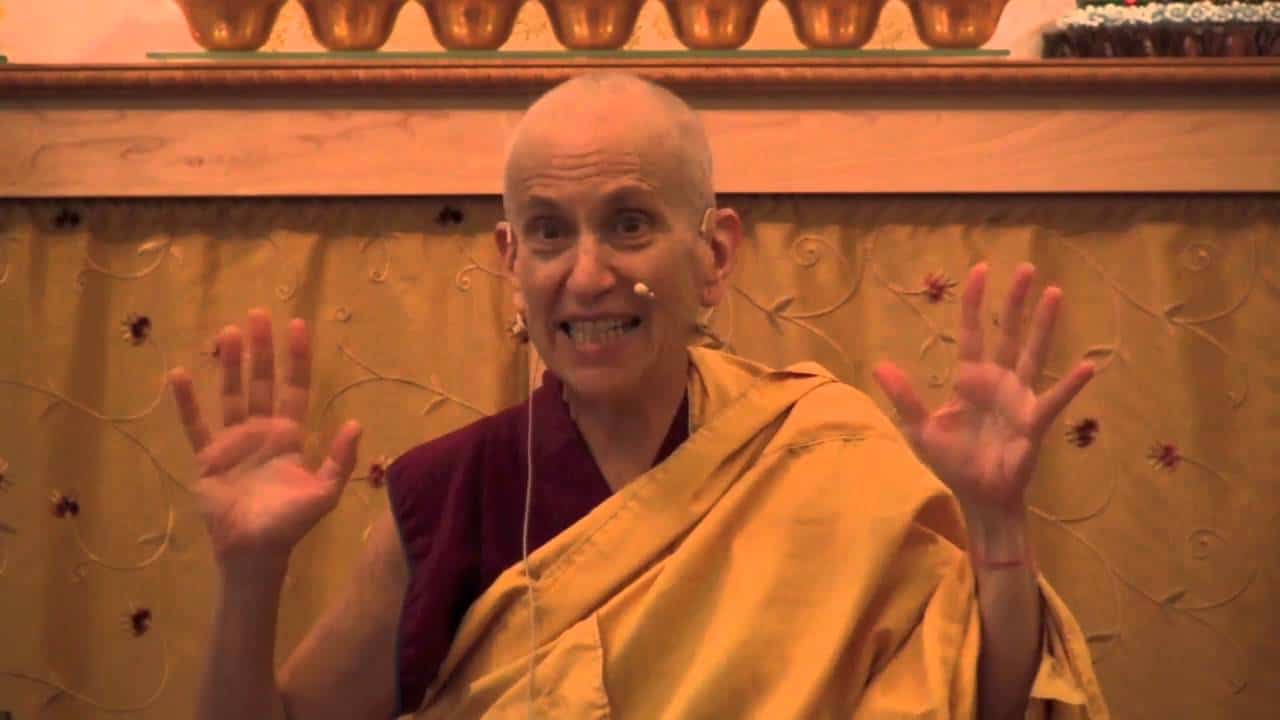Developing conviction in karma
Having generated the motivation for a good rebirth, the text turns to creating the causes for that goal. Part of a series of teachings on the Gomchen Lamrim by Gomchen Ngawang Drakpa. Visit Gomchen Lamrim Study Guide for a full list of contemplation points for the series.
- What it means to have faith of conviction in karma
- The four principles of karma
- Happiness comes from virtue, unhappiness comes form nonvirtue
- From small virtues and nonvirtues great happiness and suffering will arise
- You don’t experience the results of what you have not done
- Performed karma does not go wasted
- The ten nonvirtuous pathways of action
- The four branches of a complete karma
- The four parts of the nonvirtue of killing
- We have to be careful of what we rejoice in because we will accumulate karma
Gomchen Lamrim 24: Conviction in karma and the four principles of karma (download)
Contemplation points
- What is “faith of conviction” or “convictional faith?” Why is it beneficial on the spiritual path?
- Why is an understanding of karma and its effects so important?
- Think of ways in which you very much believe in the law of cause and effect in your every day life. Why do you think its so hard for us then to act in line with ethical cause and effect (karma)?
- Explain the difference between morality in theistic religions vs. Buddhism. Why is it important for us to understand the difference?
- Describe the four characteristics of karma. Make examples of how you’ve seen them operate in your own life.
- What are the three branches of a complete action (sometimes it is described as four branches). How might a deeper awareness of these affect how you interact with others?
- Describe the branches for a complete action of killing. Think of different situations where one of the branches might not be complete for the act of killing? If the action is not complete with all branches, does the person still create karma? Why or why not?
Venerable Thubten Chodron
Venerable Chodron emphasizes the practical application of Buddha’s teachings in our daily lives and is especially skilled at explaining them in ways easily understood and practiced by Westerners. She is well known for her warm, humorous, and lucid teachings. She was ordained as a Buddhist nun in 1977 by Kyabje Ling Rinpoche in Dharamsala, India, and in 1986 she received bhikshuni (full) ordination in Taiwan. Read her full bio.


